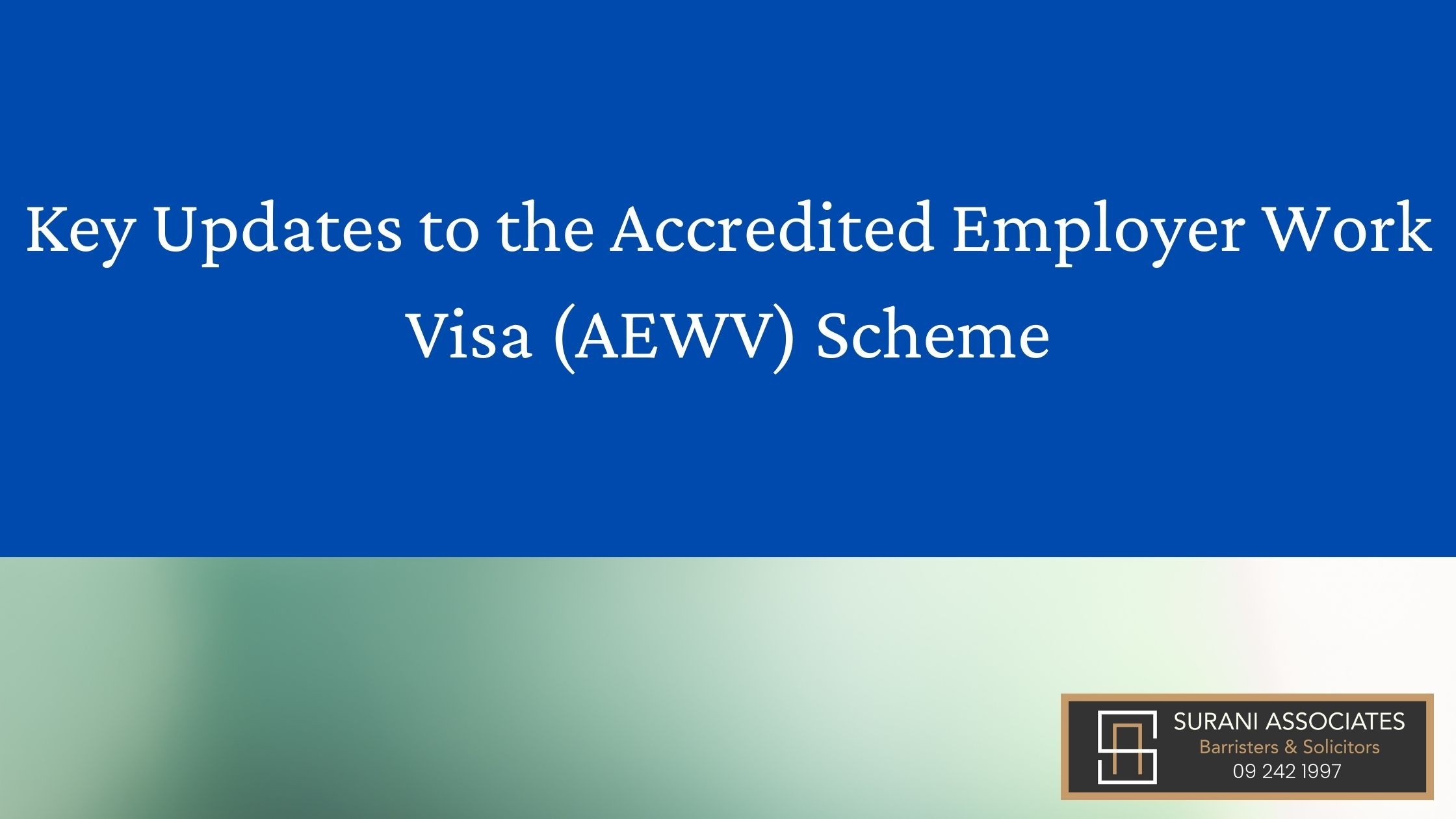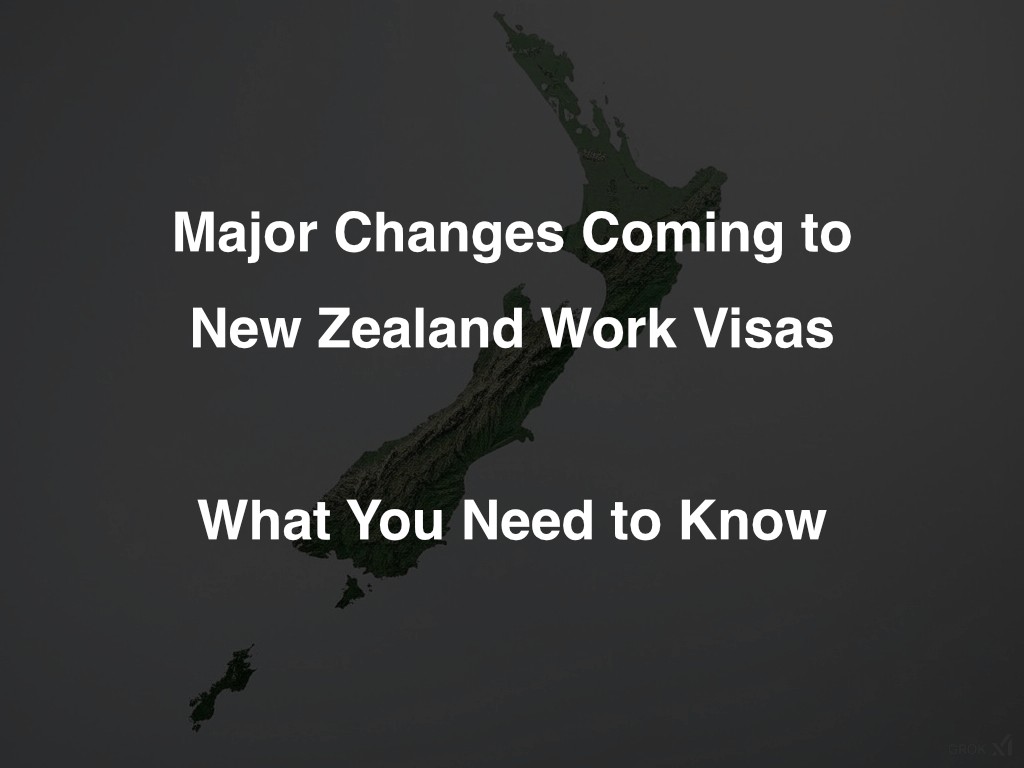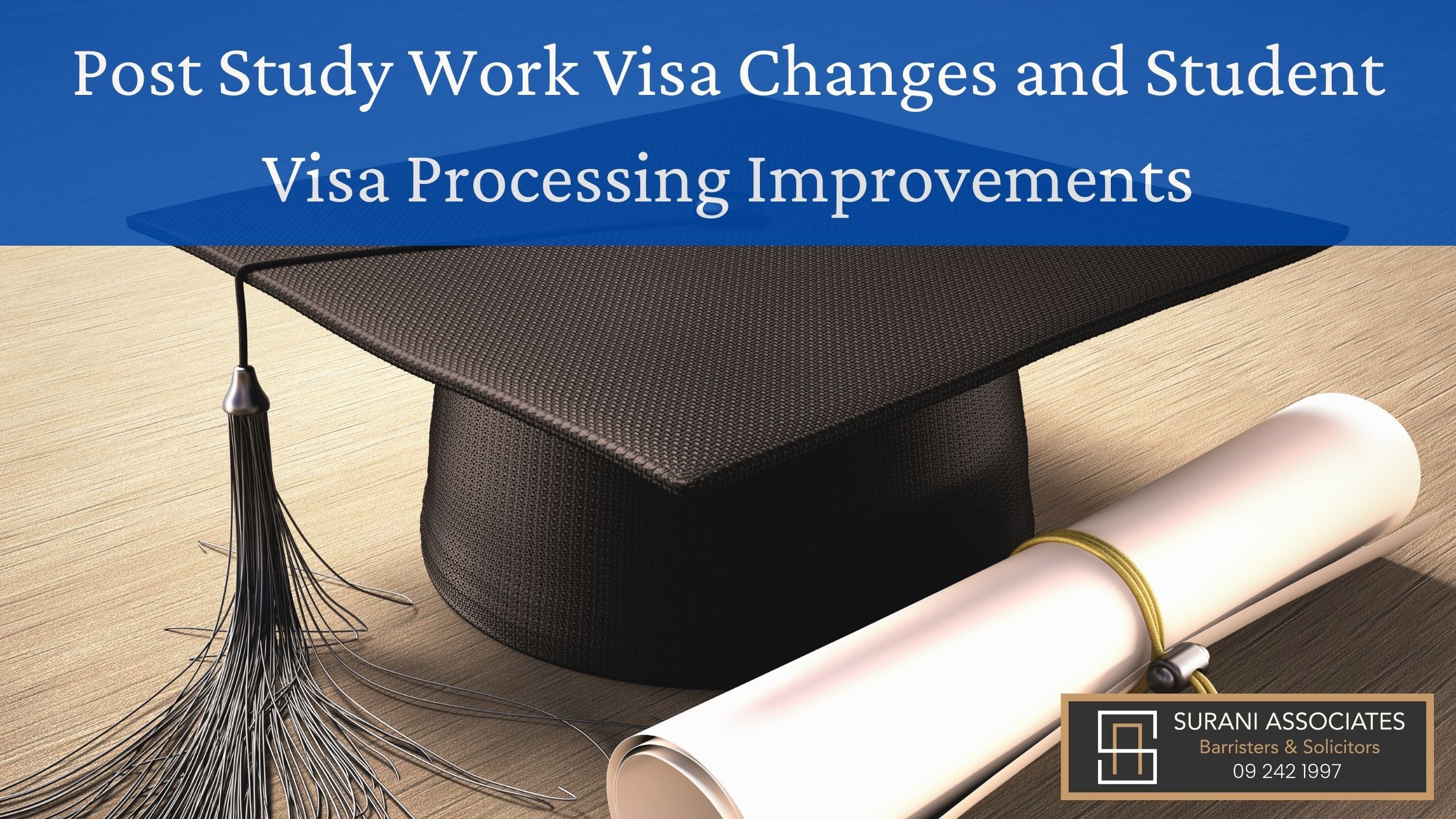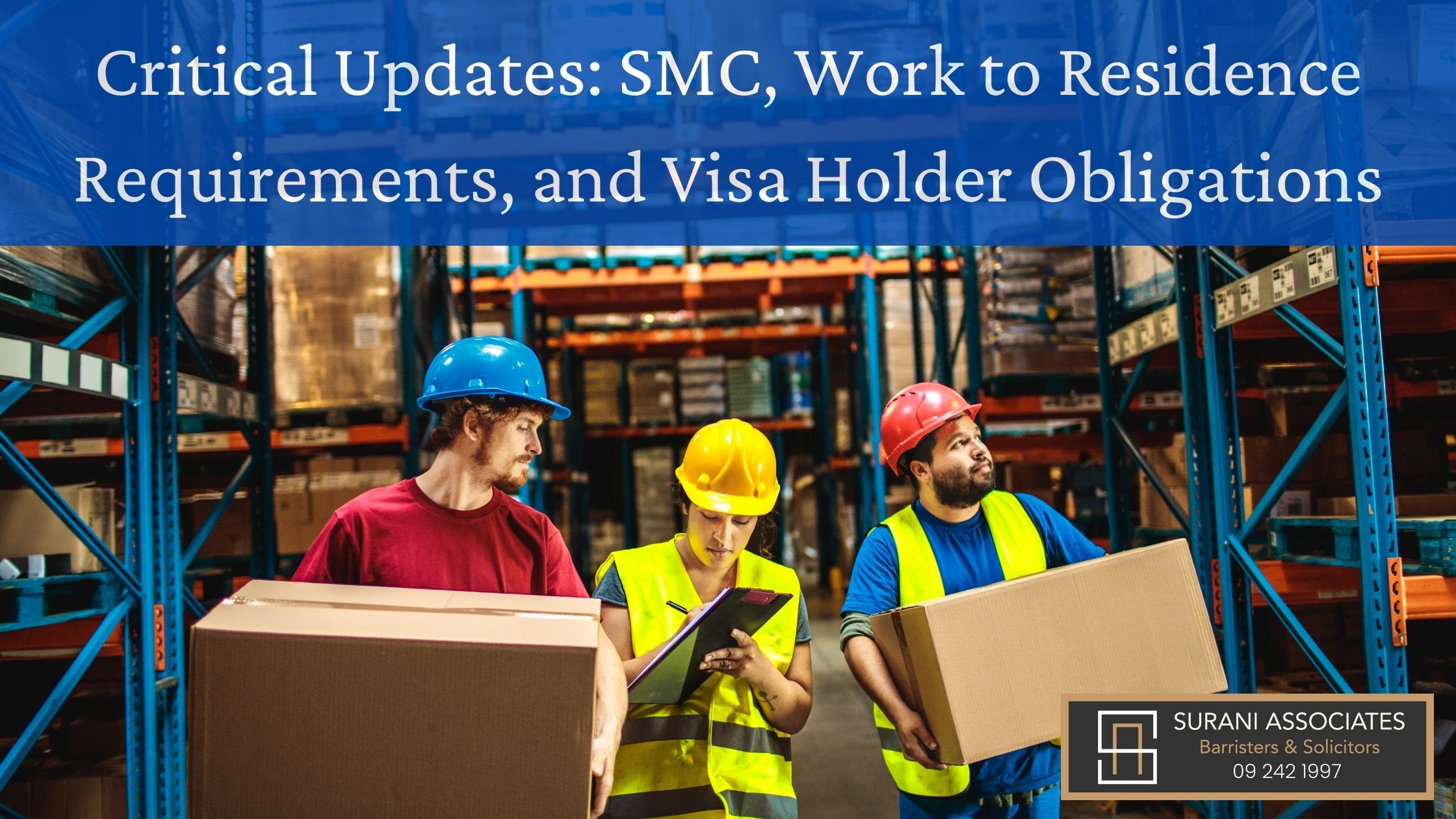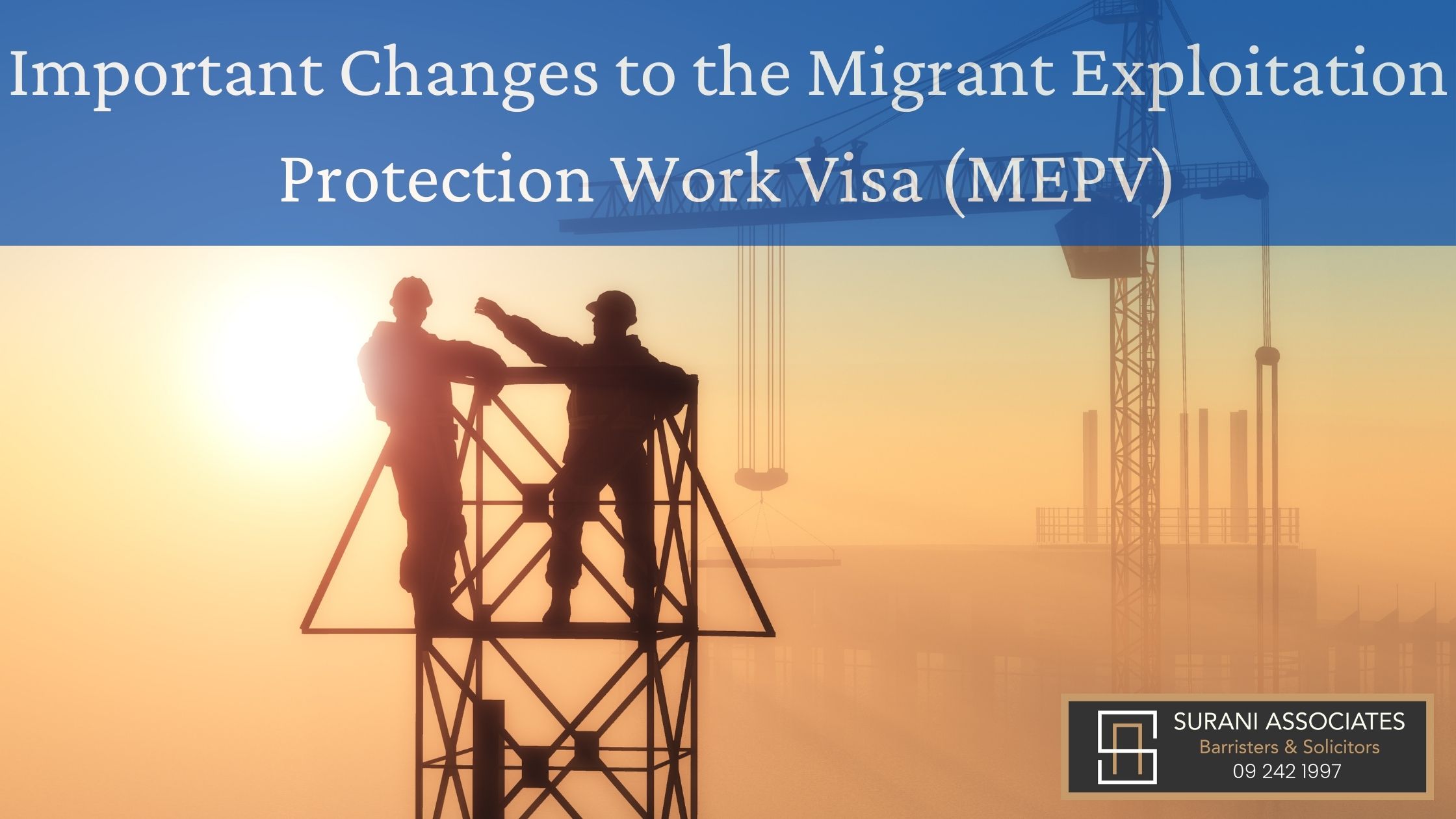24 Jul 2024
Key Updates to the Accredited Employer Work Visa (AEWV) Scheme
Essential changes to the AEWV scheme, including updates on partners and dependents, English language requirements, minimum skills threshold, and maximum continuous stay periods.
Kia ora everyone,
Immigration New Zealand (INZ) has released extensive updates to the Accredited Employer Work Visa (AEWV) scheme. At Surani Associates, we've compiled a comprehensive Q&A to help you navigate these changes.
Partner and Dependent Visas
Q1: How do recent changes impact AEWV holders' ability to support visas for partners and dependents? A: As of 26 June 2024, AEWV holders working in ANZSCO skill level 4 or 5 roles can no longer support visas for partners and dependent children, unless they applied before this date.
Q2: What options are available for affected family members? A: They can apply for visas in their own right or for short-term visitor visas.
Q3: Can partners who held a relationship-based visa on 26 June 2024 switch to another visa type and then back to a partner visa? A: Yes, they can move to a different visa (e.g., student visa) and then back to a partner visa, assuming the AEWV holder hasn't completed their maximum continuous stay.
Skill Levels and Qualifications
Q4: What are the new minimum skills threshold requirements? A: All AEWV applicants must now meet a minimum skills threshold, typically involving a relevant NZQCF Level 4 qualification or above, or at least three years of relevant work experience.
Q5: How are Bachelor's degrees treated in terms of relevance to job offers? A: Bachelor's degrees or higher can be considered relevant to any employment offered.
Q6: Do AEWV applicants relying on overseas qualifications below Bachelor's level need an International Qualification Assessment (IQA)? A: Yes, IQAs are required for qualifications below a Bachelor's degree from outside New Zealand.
English Language Requirements
Q7: Are there new English language requirements? A: Yes, new requirements have been introduced for AEWV applicants in ANZSCO skill level 4-5 roles.
Q8: Will INZ hold applications if an applicant is waiting for English language test results? A: Generally, no. Applications made without evidence of meeting English language criteria will typically be declined.
Maximum Continuous Stay
Q9: How have maximum continuous stay periods changed? A: New periods have been introduced, including 5 years for those earning at least the median wage, with varying periods for sector-specific roles.
Q10: Can applicants apply for a new visa before completing their stand-down period? A: Yes, but the stand-down period should have ended by the visa grant date.
Job Changes and ANZSCO Assessments
Q11: Do Job Changes require meeting new English language or minimum skills requirements? A: No, as Job Changes are not new visa applications.
Q12: How does INZ assess ANZSCO skill levels for job roles? A: INZ primarily determines this during the Job Check stage, considering job descriptions, advertisements, and application form declarations.
Q13: Can immigration officers change an ANZSCO code from what the employer has assessed? A: Yes, and INZ will send a PPI (Potentially Prejudicial Information) letter if they determine a lower skill level.
Labour Market Test
Q14: Do employers need to advertise roles with the new minimum skills threshold when testing the labour market? A: No, employers should advertise with the actual requirements needed to fill the role, not the AEWV minimum skills threshold.
Q15: What does 'readily trainable' mean in the context of labour market testing? A: It typically refers to someone who could be trained on the job within about six months.
Employer Obligations
Q16: What are employers' obligations regarding the Employment New Zealand (ENZ) modules? A: Everyone making recruitment decisions about AEWV holders or applicants must complete the ENZ online employer modules once within every accreditation period.
Q17: How should employers demonstrate they've assessed a worker's evidence of relevant work or qualifications? A: Employers should keep records of evidence provided or details of documents sighted, including dates.
At Surani Associates, we understand the complexity of these changes. Our expert team is here to guide you through these updates, whether you're an employer or visa applicant. Remember, while this Q&A covers key points, individual circumstances can vary. For personalised advice, please don't hesitate to contact us.
Stay informed, stay compliant, and let's navigate these changes together for your success in Aotearoa New Zealand.
